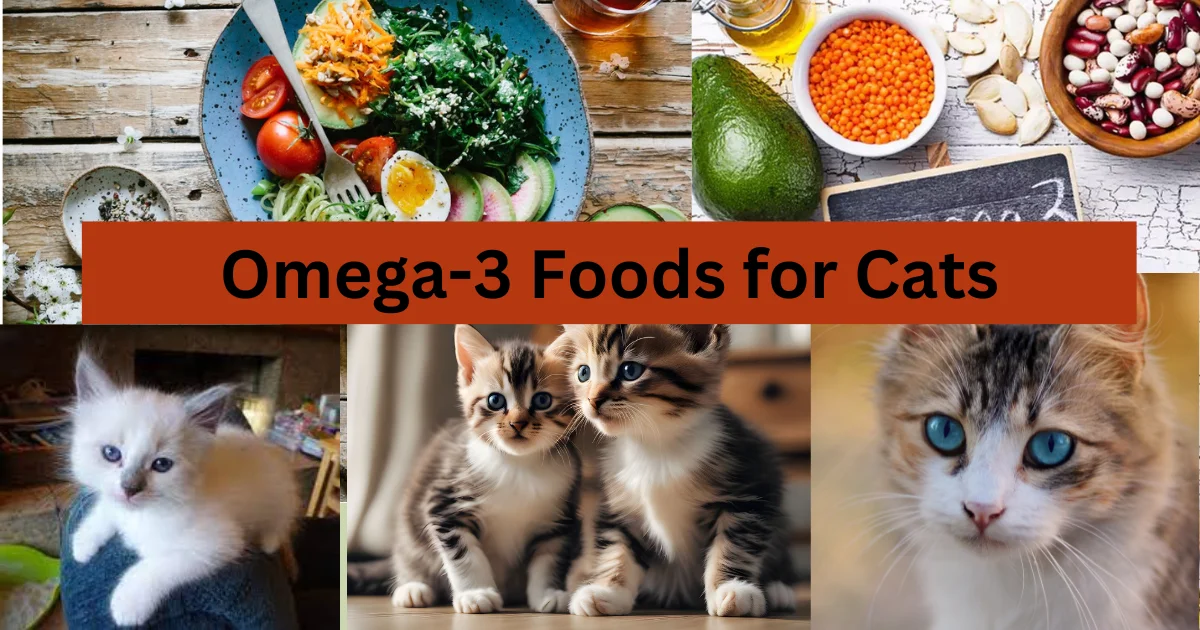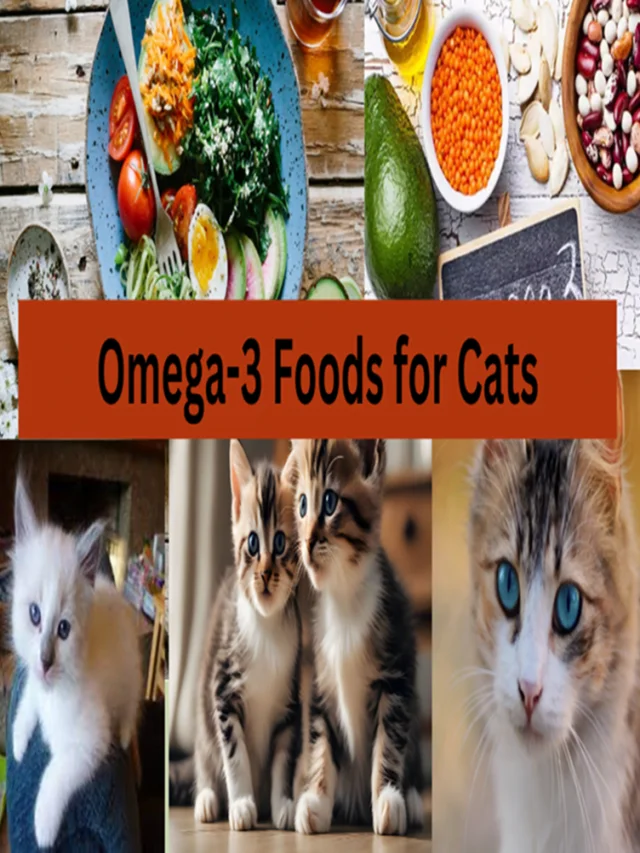Introduction:
Omega-3 for Cats: Ensuring optimal nutrition for your feline companion is vital for their overall health and well-being. Omega-3 fatty acids, a group of essential nutrients, play a crucial role in supporting various bodily functions in cats. Among the different types of omega-3, eicosatetraenoic acid (EPA) and docosahexaenoic acid (DHA) are particularly beneficial for cats, offering a myriad of health advantages.
Omega Benefits for Cats:
Heart Health:
Omega-3 fatty acids contribute to cardiovascular well-being by promoting a healthy heart and reducing the risk of heart-related issues in cats.
Skin and Coat Health:
One noticeable benefit of omega-3s is the improvement in a cat’s coat and skin condition. These fatty acids contribute to a lustrous, shiny coat and help alleviate skin irritations.
Joint Health:
Omega-3s possess anti-inflammatory properties, making them advantageous for cats with joint issues or arthritis. They can help manage inflammation and enhance joint mobility.
Brain Development:
Particularly crucial for kittens, DHA aids in the development of the nervous system and cognitive functions, contributing to better learning and problem-solving abilities.
Omega-3 for Cats in Disease Management:
Inflammatory Conditions:
Omega-3 fatty acids are known for their anti-inflammatory effects, making them beneficial for cats suffering from inflammatory conditions like allergies or inflammatory bowel disease (IBD).
Renal Health:
Cats with kidney disease may also benefit from omega-3 supplementation. These fatty acids can help manage inflammation and support overall renal function.
Dermatological Issues:
Omega-3s play a pivotal role in addressing skin problems such as dermatitis or excessive shedding, offering relief to cats dealing with these issues.
List of Omega-3 foods for cats
Omega-3 fatty acids are beneficial for cats, promoting heart health, a shiny coat, and overall well-being. Here are some omega-3-rich foods suitable for cats:
Fish:
- Salmon: A great source of omega-3s. Make sure it’s cooked and boneless.
- Mackerel: Another fish high in omega-3 fatty acids.
- Sardines: Rich in both omega-3s and calcium. Choose those canned in water, not oil.
Fish Oil:
- Fish oil supplements designed for cats are available. They can be added to your cat’s food, following the recommended dosage.
Algal Oil:
- Algal oil is derived from algae and provides a plant-based source of omega-3s. It’s suitable for cats and a good alternative for those with fish allergies.
Krill Oil:
- Krill oil is another marine source of omega-3s. It’s often available in supplement form and can be beneficial for cats.
Cat food with omega 3
- Some cat treats are specially formulated to include omega-3 fatty acids. Look for those with fish or algal oil as ingredients.
When introducing new foods or supplements to your cat’s diet, it’s essential to consult with your veterinarian. They can provide guidance on the appropriate amount and ensure that the additions align with your cat’s specific health needs. Additionally, it’s crucial to avoid excessive amounts of certain fish, as some may contain mercury, which can be harmful in large quantities. Always prioritize the well-being of your feline friend by seeking professional advice when needed.
Can Dogs Eat Cinnamon Rolls?
Choosing the Right Sources:
Selecting the appropriate sources of omega-3s is crucial. Incorporating fish like salmon and mackerel, or utilizing fish oil supplements designed for cats, ensures a balanced intake. For those with concerns about fish allergies or seeking a plant-based option, algal oil serves as an excellent alternative.
Conclusion:
Incorporating omega-3 fatty acids into your cat’s diet can be a proactive step towards ensuring their health and happiness. Whether it’s for preventive care or managing specific health conditions, the benefits of omega-3s are far-reaching. However, it’s essential to consult with your veterinarian to determine the right dosage and sources tailored to your cat’s individual needs. Prioritizing your feline friend’s nutritional requirements, especially in terms of omega-3s, is a thoughtful way to invest in their long-term vitality.
Why are omega-3 fatty acids important for my cat’s health?
Omega-3s, specifically EPA and DHA, support heart health, contribute to a shiny coat, aid in joint function, and promote cognitive development, making them essential for your cat’s overall well-being.
Can I give my cat fish oil supplements for omega-3s?
Yes, fish oil supplements formulated for cats can be a convenient way to provide omega-3s. However, it’s crucial to consult your vet for proper dosage and to ensure it complements your cat’s diet.
Are there plant-based options for omega-3s for cats?
Absolutely! Algal oil, derived from algae, serves as a plant-based source of omega-3 and is suitable for cats. It’s an excellent option for those with fish allergies.
How do omega-3s benefit cats with skin issues?
Omega-3s have anti-inflammatory properties that can help alleviate skin irritations, reduce itching, and contribute to a healthier coat, making them beneficial for cats with dermatological concerns.
Can omega-3s help with my cat’s joint problems?
Yes, omega-3 fatty acids can assist in managing inflammation and promoting joint health. They may be particularly beneficial for cats dealing with arthritis or other joint-related issues.
Are there risks associated with omega-3 supplementation for cats?
While omega-3 are generally safe, excessive amounts can lead to vitamin E deficiency. It’s crucial to follow your veterinarian’s recommendations regarding dosage to ensure your cat receives the right amount.
Can kittens benefit from omega-3?
Absolutely. DHA, a type of omega-3, is crucial for the development of a kitten’s nervous system and cognitive functions. Omega-3 supplementation can contribute to their overall growth and well-being.
Are there alternatives to traditional fish-based omega-3 sources?
Yes, besides fish, you can opt for algal oil supplements, ensuring a plant-based and fish-free source of omega-3 for your cat.



